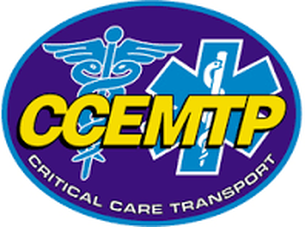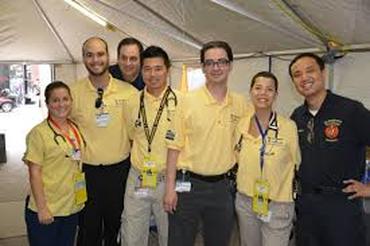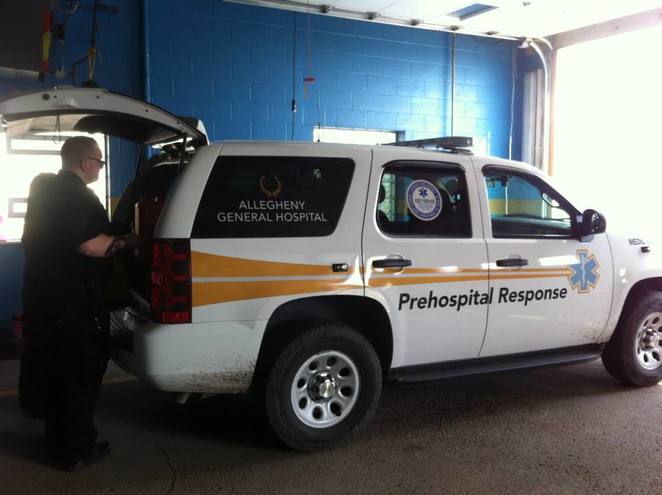PGY-2 ROTATION IN EMERGENCY MEDICAL SERVICES
The PGY-2 rotation builds upon previous experience and tasks the resident with certain "medical control physician" functions. Specifically, residents will have the option of serving as an assistant medical director and perform quality assurance audits, case reviews, and other administrative functions. Ride alongs will continue, and residents will develop, edit, and deliver a continuing education lecture to an area emergency medical response service or educational organization. The PGY-2 rotation will begin with enrolling in the Pennsylvania State "medical command course." Residents will also receive specific orientation to the operation and structure of affiliated ground EMS and LifeFlight programs.
Medical Command Readings
As opposed to providing precise "direction" or "orders" to prehospital providers, medical control physicians should strive to empower those on the medical front lines and cultivate critical thinking. Ideally, a properly trained, educated, and prepared paramedic will not require the close oversight of a medical command physician. However, the modern emergency medical services systems are comprised of various providers. Each "level "of provider has a distinct level of training and scope of practice. Therefore, medical control physicians must first understand the capabilities of the system in which they function. PGY-2 residents will build upon their field experience and complete additional training targeted to the services affiliated with the Allegheny General Hospital.
1. Medical oversight of EMS systems
2. Legal issues in EMS
1. Medical oversight of EMS systems
2. Legal issues in EMS
Emergency Preparedness and Disaster Medicine
Physicians have an important role in emergency management. Specifically, emergency physicians are accustomed to rapid patient assessment and comprehend the need for rapid, accurate triage. Positioned on the front lines of health care delivery, emergency medicine physicians are uniquely positioned to render assistance to those affected by mass casualty, disaster, and other large scale incidents. Unfortunately, little time is reserved for interested physicians to familiarize themselves with the challenging care environment encountered during these incidents. During the second year of the emergency medicine resident rotation, the learner will progress through an online, disaster-focused curriculum (under development). The learning module will review the process of triage and provide several "real-world" examples that showcase the importance of proper preparation and disaster response. The online curriculum is featured on the disaster and emergency management page. Residents will practice these skills during annual emergency operations exercises and mass casualty drills based at the hospital .
Quality Improvement and EMS Education
Emergency medicine physicians are often tasked with evaluating the quality of care provided by emergency medical service and hospital based providers. Residents will review run reports of services assigned to the Allegheny General Hospital medical command facility and provide constructive feedback to participating agencies. Patient focused clinical outcomes such as STEMI identification, patient assessment, and endotracheal intubation success will be monitored and reported. Residents on rotation will also be tasked with development and delivery of one continuing medical education lecture focused on a subject relevant to prehospital medicine. Multiple opportunities exist for resident physicians to hone their educational and public speaking skills.
Emergency Vehicle Operations
Residents interested in service as an Assistant Medical Director will be STRONGLY encouraged to enroll in an emergency vehicle operator's course. This course provides physicians with an overview of relevant laws and policies that influence the operation of responding ambulances and EMS apparatus. The Emergency Vehicle Operator's Course will be required of any resident who desires to function as a service Assistant Medical Director. Classes will be offered throughout the first and second years of residency training.
"Command" Specific Training and Prehospital Physician (PHP) Review
As residents transition to more of a supervisory role, it is imperative to possess a more complete understanding of EMS operations. To that end, the training program will offer residents the opportunity to review "core" prehospital skills. PHP's will be expected to demonstrate proficiency in areas such as immobilization, triage, and spinal precautions. In addition, EMS faculty will host didactic training focused on LifeFlight operations so that residents can more effectively deal with requests from responding flight crews. Check the EMS division's calendar to be notified of upcoming training opportunities. The PHP review course is only required for those residents seeking to achieve "Assistant Medical Director" status.
As residents transition to more of a supervisory role, it is imperative to possess a more complete understanding of EMS operations. To that end, the training program will offer residents the opportunity to review "core" prehospital skills. PHP's will be expected to demonstrate proficiency in areas such as immobilization, triage, and spinal precautions. In addition, EMS faculty will host didactic training focused on LifeFlight operations so that residents can more effectively deal with requests from responding flight crews. Check the EMS division's calendar to be notified of upcoming training opportunities. The PHP review course is only required for those residents seeking to achieve "Assistant Medical Director" status.


